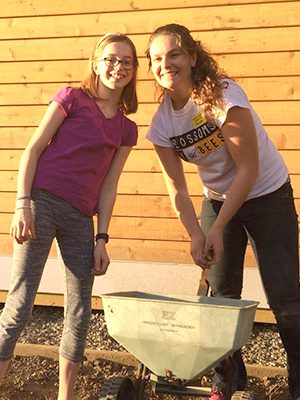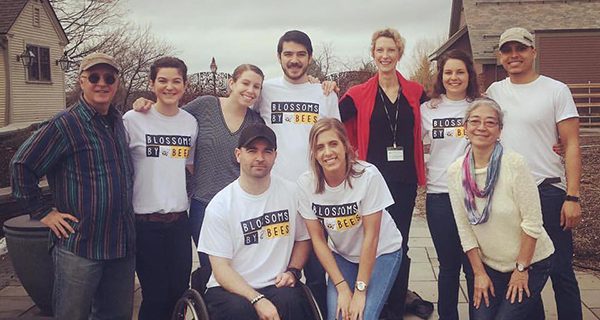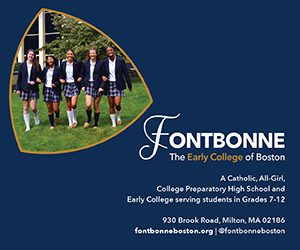[ccfic caption-text format="plaintext"]
By Katrina Margolis
Hometown Weekly Reporter
Ariel Harris recently acquired 20,000 bees, which will multiple to 60 or 80,000 by the summer. “That’s only if my queen is good,” she said. The two hives, consisting of 10,000 bees each, are only five feet away from each other and already have completely different personalities. “It’s all based on pheromones from the queen and what she emits.”
Harris acquired the bees after beginning a non-profit about a year ago called Blossoms by Bees. “I was watching Ted Talks and I watched one on bees and I was like: ‘We need to do something about this!’” she said.
Now, Harris and her friends plant wildflower gardens all over the area to help revitalize bees’ habitats.

Ariel Harris began Blossoms by Bees about a year ago. The group plants native wildflower gardens for anyone who’d like one in the area. Photos provided by Ariel Harris
In the story, the woman goes around throwing seeds into the air, though Harris discovered it’s a little bit harder to help the bees than that. “Essentially, bees need their habitat back. Their habitats are either being destroyed or poisoned. And how much of our agriculture depends on it annually - $15 billion alone from honey bees - which is crazy.”
New England is full of cold weather grasses, which choke out a number of species in order to survive. In addition, many invasive species have come into the area, making it difficult for native wildflowers to thrive. “Invasive species can be good for pollinators, but there are certain native species that certain pollinators absolutely need,” Harris explained. “For example, the monarch butterflies need milkweed because it’s the only plant their larvae can feed on after they’ve hatched.” Without milkweed, there would be no more monarchs. The organization’s goal is not only to help revitalize these environments, but educate the general population about the bees’ situation as well.
Blossoms by Bees plants wildflower gardens in people’s backyards. Native wildflower seed can be expensive, so all of the fundraising the group does goes towards buying the seed and the necessary equipment to plant. The group is focusing on two upcoming fundraising events. They will be hosting a 5K in July, as well as a pop-up kitchen in August. “It will be featuring fruits and vegetables that are pollinated by bees,” Harris explained. Throughout the night, diners will be told what in their dish wouldn’t be there if bees were gone. “For example, if the dish is a Caprese salad, the tomatoes would have been pollinated by bees. You need a pollinator who vibrates at the right frequency to loosen the pollen,” she elaborated.
While the organization is relatively new, the momentum that Harris and the rest of the group has is strong, and the Walpole area should expect to hear much more from this burgeoning nonprofit.






















